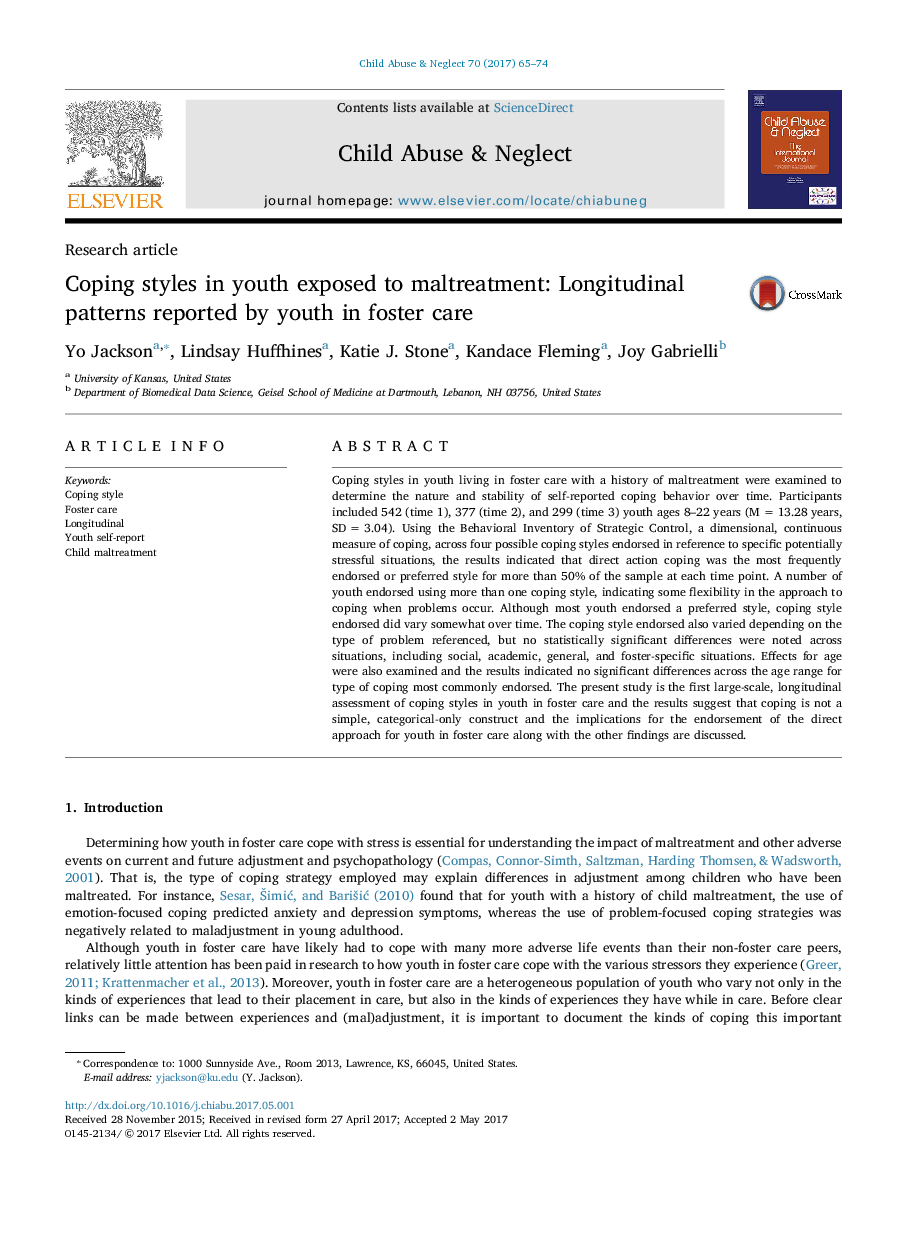ترجمه فارسی عنوان مقاله
سبک های مقابله ای در جوانان در معرض بدرفتاری: الگوهای طولی گزارش شده توسط جوانان در مراقبت های پرستاری
عنوان انگلیسی
Coping styles in youth exposed to maltreatment: Longitudinal patterns reported by youth in foster care
| کد مقاله | سال انتشار | تعداد صفحات مقاله انگلیسی |
|---|---|---|
| 125448 | 2017 | 10 صفحه PDF |
منبع

Publisher : Elsevier - Science Direct (الزویر - ساینس دایرکت)
Journal : Child Abuse & Neglect, Volume 70, August 2017, Pages 65-74
ترجمه کلمات کلیدی
سبک مقابله، نگهداری فرزند، طولی جوانان خود گزارش، بدرفتاری با کودک،
کلمات کلیدی انگلیسی
Coping style; Foster care; Longitudinal; Youth self-report; Child maltreatment;

